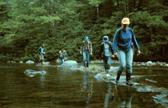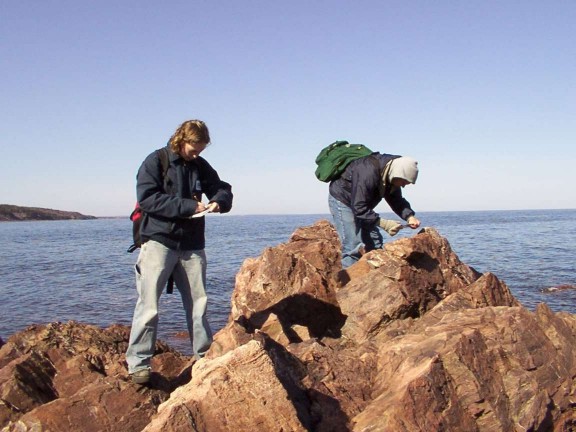Senior Geology Mapping Field School
| Acadia has run a Senior Geology Field School at St Anns, Cape Breton Island, for over 30 years. It is an essential resource for productive and successful future geologists. The program was developed initially to meet an increasing demand for field experience and continues to be offered at the beginning of the final year of the geology curriculum. It is run entirely from the Gaelic College in St. Anns, on Cape Breton Island. Since its inception, more than 150 geology majors have attended the field school. Although most of the costs of the field school are covered by Acadia University, we solicit your donation to lower the related costs so that all students who want to do so can afford to attend the field school. |
|
|
|
The mission of Acadia’s geology curriculum is “to provide state-of-the-science instruction and education in the Earth Sciences in an environment conducive to research and advanced study.” One of the key aspects of this education is ensuring that many of our graduates obtain the practical experience of quality field work. |
| The geologist’s laboratory is in the field. Acadia’s Senior Geology Field School at St. Anns, nestled in the southern Cape Breton Highlands, provides an outstanding natural laboratory for field instruction. | 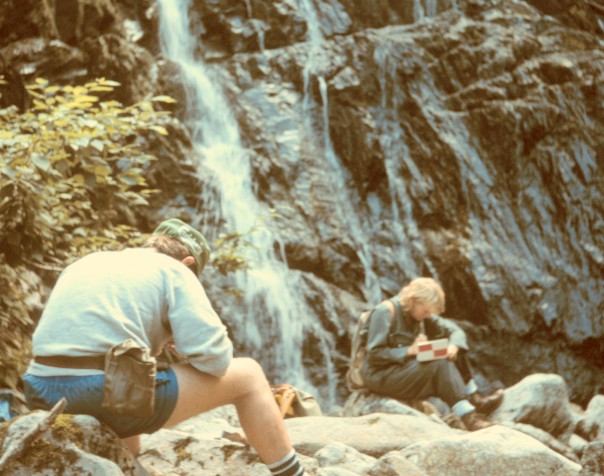 |
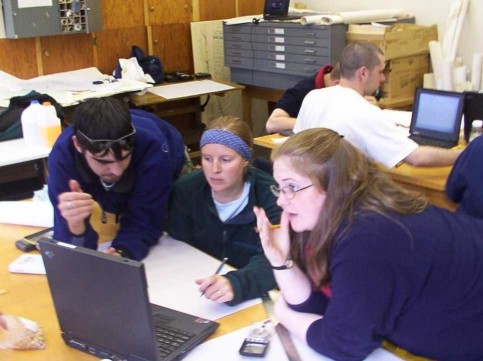 |
In conjunction with the Acadia Advantage Program, an academic initiative that integrates the use of notebook computers into the undergraduate curriculum, the Earth & Environmental Science Department has been able to incorporate digital location recording by GPS and digital mapping techniques into the course of studies. |
| The success of the Senior Geology Field School is due in part to its proximity to diverse geologic terrain, well developed geologic structures, and abundant rock exposure. | 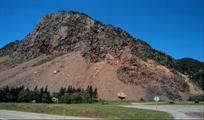 |
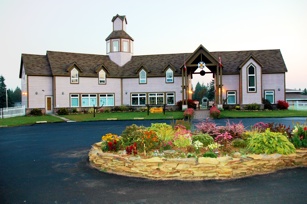 |
The Gaelic College at St. Anns, Cape Breton Island, also provides the right environment for a total learning experience. Students use their computers to draft maps, draw sections, display data and solve problems in structural geology, and they have access to microscopes, geophysical data files, and accurate base maps that have been collected over the years we have taught the field school. |
| The field school is nine days in duration at St. Anns, at the end of which time students are responsible for producing a map and written report. Planning and integrating their observations with previously acquired geophysical and microscopic data, and completing the report in the field camp are essential steps in learning within the field school environment. Following submission of the reports and maps, they are rigorously marked and edited, giving the students an opportunity to hone their writing skills. Following the completion of this exercise, a second two-day mapping project is done during the fall study break near Wolfville. This gives students a chance to complete the exercise with "a clean slate". |
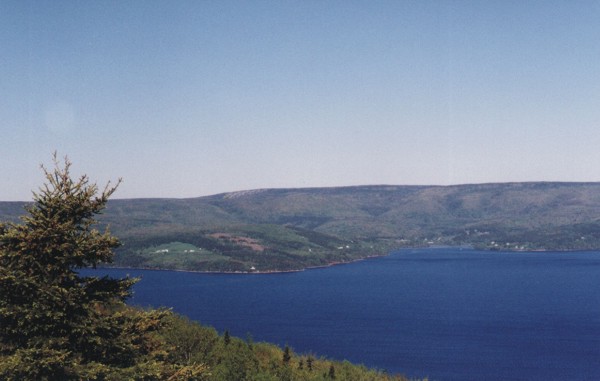 |
Students profit from the experience and skills acquired from the field school at Acadia, as do the corporations that have sought them out because of the skills they have acquired. The experience is both intense and relevant to their other geological studies.
If you would like to assist senior students to attend this field school, please visit our Cycle of Opportunity web page. The cost of the accommodations at the field school must be borne by the participants, who often give up two weeks income from summer jobs to return early to join us. Your contribution would assist students to take part.

